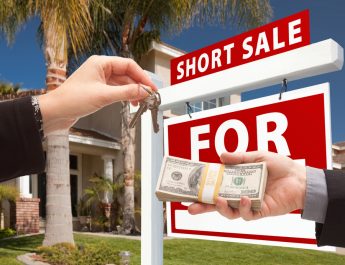There is a constant debate in the media over housing prices and whether they will rise or fall. Ordinary folks who want to buy a home are worried about buying then losing money as prices fall further. Sellers with homes to sell are concerned about whether they can sell their homes at the price they want. Real estate investors are concerned about Parc Greenwich EC price as well as the covering costs on existing properties, and wondering how to maintain a sustainable income.
There are many problems and issues swirling in the housing market. But the bottom line, in my opinion, is that housing has become unaffordable for the average American.
Just like a house must sit on a firm foundation to keep it from eventually falling down, (or being torn down), the entire housing market rests on a foundation that relies on borrowers paying their mortgage. This is the “concrete” that forms the foundation of the entire U.S. housing market, and without it, the entire market will collapse into a pile of debris. Ultimately high home prices and their requirement for ever-increasing mortgage payments, combined with increasing property taxes, triggered the collapse of the housing market. The properties simply became unaffordable, when all the costs of ownership were added to the mix.

This is where we are today. The foundation of today’s housing market is of poor quality and is fractured badly. As a result, the entire market is struggling to remain level and is threatening to collapse at any moment. In fact, this foundation is of such poor quality today, that without the constant efforts of the Federal Reserve to pump money into the “cracks” in the mortgage market, the entire foundation would have crumbled already.
While many may argue about how we got here, and who is to blame, the bottom line is we’ve got to have a firm foundation if the housing market is to remain standing. That can only be accomplished with AFFORDABLE housing. Prices are still falling simply because fewer and fewer buyers and tenants are earning enough income to make their mortgage or rent payments. When income drops, people can’t afford big houses with expensive utility bills and high property taxes.
A perfect storm of problems has gotten into the mix. 20 million jobs have been lost in manufacturing since 1980. Over the past two years, U.S. based corporations have cut 500,000 jobs in this country, while adding more than 700,000 jobs overseas! Those jobs are not coming back to the U.S. even if we have a “recovery”. This loss was hidden largely by the increases in home building and construction up until prices became unaffordable for average Americans. By 2006 homes were so expensive that most of the people building them could not afford to buy them. Today we are stuck with millions of homes that were foreclosed on before anyone could even move in.
The real estate industry has been built on a commission-based compensation structure that encourages higher and higher selling prices. Banks are trying desperately to protect their “assets” and their solvency, by clinging to unrealistic selling prices, even for foreclosed homes. No one wants to admit what these houses are really worth, so the charade continues. Government “guaranteed” loans have only encouraged higher prices, by hiding the real risks involved in selling expensive homes to people who don’t have enough income to afford the down payments that once were considered “normal”.
But, a falling dollar, a rising cost of living, and the permanent loss of millions of American jobs is the “handwriting on the wall” for housing. Home prices will continue to fall until they reach parity with real income. Only when borrowers can afford their mortgage payment, and tenants can afford their rent, will prices stabilize and stop falling.
The smart home builders, real estate agents, mortgage companies, and real estate investors will be focused on providing affordable shelter for their clients and customers. Once homes are again affordable, borrower defaults will decline to normal levels, and tenants will be able to pay their rent. We can no longer ignore the simple fact that affordability is the essential ingredient in the foundation of the housing market. ***




